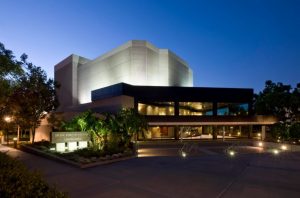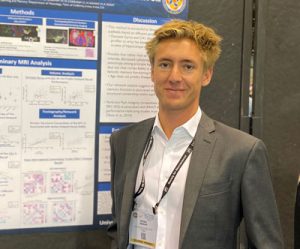12-10-19
Memory Expert Dr. Daniel L. Schacter provides a comprehensive overview of the “Seven Sins of Memory” to a packed house at the Irvine Barclay Theatre
By Steven Granger
Memory characterizes our sense of self and informs our future. We certainly know that our memory can be flawed, leading us to forget important details of our past, however no one had organized a scheme of the different kinds of memory errors that existed until Dr. Schacter described these phenomenon in his 2001 book, The Seven Sins of Memory.
This year at the 2nd Annual McGaugh-Gerard Lecture on Learning and Memory, Harvard Psychology Professor and memory research pioneer Dr. Daniel L. Schacter spoke about his updates to these “seven sins” based on what we have learned in the last 18 years. During his talk, Dr. Schacter gave a preview of the new release of this work with updated science and conceptual reframing of his past work.
The auditorium at the Irvine Barclay Theatre was filled to capacity with 750 community members excited to hear from this renowned author and expert in the field of learning and memory.
Schacter began with a review of the Seven Sins drawing our attention to the sins of omission (transience, absent mindedness, and blocking) and moving into the sins of commission (misattribution, suggestibility, bias, and persistence). Dr. Schacter artfully described these types of memory failures drawing from his immense knowledge of the science of the relationship between brain and behavior. Dr. Schacter’s closing statements included several major updates.
First, he noted that the sins should not be viewed as flaws but rather the price we pay for the benefits of memory. In this fashion, he remarked about the “sin of persistence” which in his classical description refers to unwanted recollections that people cannot forget. While this may seem as an error in the context of memory dysfunction in mood disorders such as Post Traumatic Stress disorder, Dr. Schacter reminds us that this type of sin (and others) should be viewed as a price we pay for the benefits of memory. Thus, the persistence of a memory that preserves our safety, like avoiding snakes with rattles or patterned poisonous frogs, is a benefit of memory that aids our survival.
Second, Dr. Schacter reminded us that while many of the seven sins relate to processing and forgetting of the past, that these neurobiological systems also are used to predict our future. “We as humans inherently use past scenarios to imagine possible future scenarios by taking flexible pieces of the past and combining them to create novel ideas for the future.” Dr. Schacter described in detail how he has used brain imaging to provide neural evidence of brain patterns for remembering the past and predicting the future.
Though his research laboratory is at Harvard University, this wasn’t Dr. Schacter’s first public lecture at the Irvine Barclay Theatre. In fact, he was the very first speaker in the CNLM’s first public lecture series founded in 1995, the Distinguished Lecture Series on Brain, Learning and Memory. Both of the CNLM’s public lecture series aim to encourage community engagement with science and promote public understanding of the brain, learning and memory.
As a current PhD student studying the neurobiology of learning and memory who was first introduced to The Seven Sins of Memory as an undergraduate, I found that Dr. Schacter’s talk served as a reminder to always be critical and rigorous in the pursuit of your own ideas and reflective of how you might improve them. I am grateful to have had the opportunity to hear about his research journey and learn from work.
Find out more about Dr. Schacter’s talk by visiting: https://cnlm.uci.edu/mg19/

The Distinguished Lecture Series on Brain, Learning and Memory, founded in 1995, is an integral part of the CNLM's outreach mission. Lectures are free and are intended for a lay audience. Attendees are provided with ample opportunity to interact with and ask questions of the speakers. Lectures are generally 45-50 minutes long and are followed by about 20-30 minutes of questions from the audience.

About Steven Granger
Steve is a Ph.D. student and co-chair of the communications committee in the CNLM Ambassador program. He received his B.S. in Psychology from Barrett the Honors College at Arizona State University. He is interested in novel antecedents of psychiatric disorders, noradrenergic influence in emotional memory systems, and neurodegenerative diseases. Feel free to ask Steve about the brain regions involved in emotional memory computations, early life stressors, and innovative ways to study white matter in the human and animal brain.
